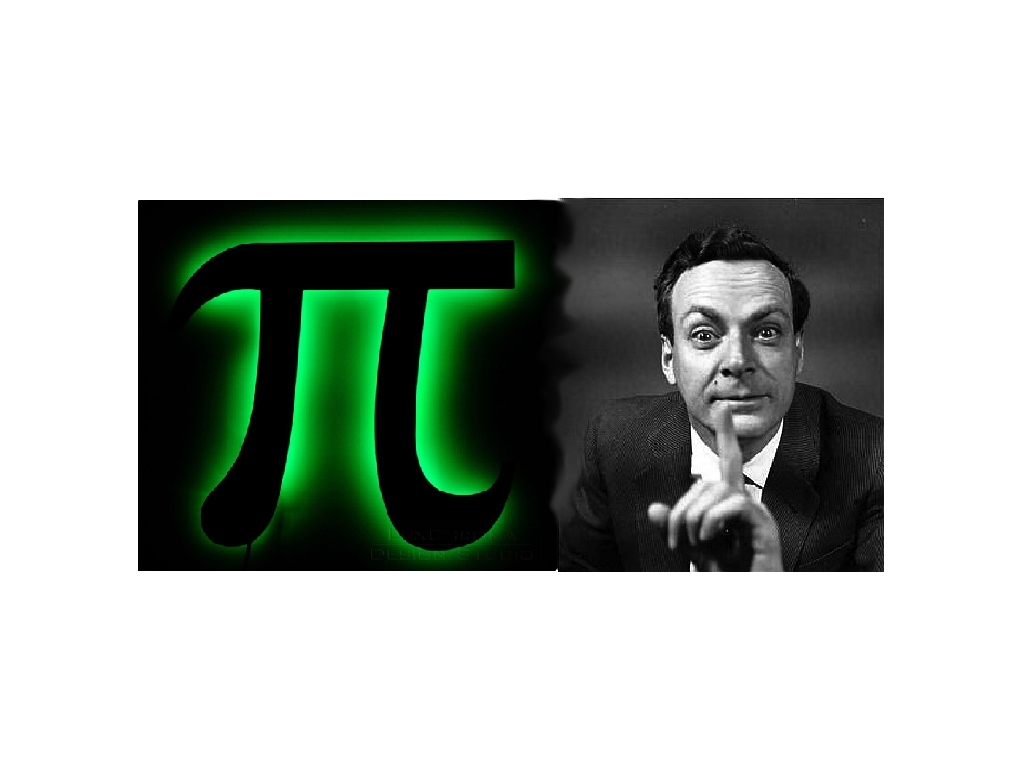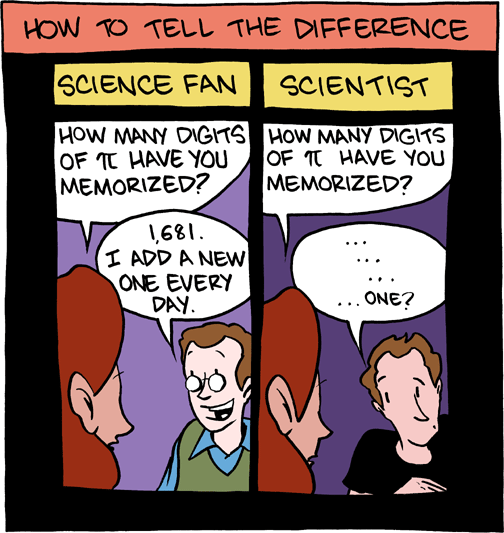The Feynman Point!

Have you ever seen or heard of someone who has memorized a lot of digits of ? Have you ever tried doing that in your life?
Whatever your answers are, there is another question that is related to all of this: why on earth would anyone want to do that? What is the motivation behind it?
I have a good answer for that.
The Feynman Point.
What? I know most of you are now scratching your head. Well, stop scratching and take a look at what Wikipedia has to say about this:
The Feynman point is a sequence of six 's that begins at the nd decimal place of the decimal representation of . It is named after physicist Richard Feynman, who once stated during a lecture he would like to memorize the digits of until that point, so he could recite them and quip "nine nine nine nine nine nine and so on", suggesting, in a tongue-in-cheek manner, that is rational.
I can't speak for anyone else, but to me, that is one of the coolest [if not the coolest] motivations behind memorizing the digits of .
So, if you're interested, take out a list containing the first thousand digts of and start memorizing!
Last but not the least, whenever I write something about the digits of , I can never resist putting this comic in it. It's funny because it's true!
 Alt text
Alt text
The comic was taken from here.
Easy Math Editor
This discussion board is a place to discuss our Daily Challenges and the math and science related to those challenges. Explanations are more than just a solution — they should explain the steps and thinking strategies that you used to obtain the solution. Comments should further the discussion of math and science.
When posting on Brilliant:
*italics*or_italics_**bold**or__bold__paragraph 1
paragraph 2
[example link](https://brilliant.org)> This is a quote# I indented these lines # 4 spaces, and now they show # up as a code block. print "hello world"\(...\)or\[...\]to ensure proper formatting.2 \times 32^{34}a_{i-1}\frac{2}{3}\sqrt{2}\sum_{i=1}^3\sin \theta\boxed{123}Comments
That's nothing! I remembered ALL the digits of the largest known prime number. Here it goes:
fifty-seven million eight hundred eighty-five thousand one hundred sixty-one 1’s111111111111111111111111111111111111111111111111111…1
in base 2.
Log in to reply
Show off! :)
For those who don't know what @Pi Han Goh is talking about: there are certain primes that are off the form 2p−1 where p is a prime number. These prime numbers are called Mersenne primes. Mersenne primes tend to get really big really fast and it's not hard to see why. In fact the largest known prime number is a Mersenne prime, 257885161−1 where 57885161 is a prime number. And everyone knows that 2k−1 is just k 1's in binary.
I saw that on Numberphile he's like "I memorized it all... what's more, in base 2!"
"No wayyyyy that's impossible"
"111111..."
"Oh ok that's hilarious"
I memorized 130 digits in an afternoon for a pi day competition at my school. The next day I learn that I'm going to seattle for a soccer tournament instead.😫
I've memorized about 400 digits. I had a really boring math class in fifth grade and I sat next to the giant pi poster my teacher had in her room.
I remember the value of π upto 3.14159265358979, which is because it was mentioned in a movie "Night at the Museum 2"....
Log in to reply
I memorised up to 314 digits for pi day.
Log in to reply
You're too good. I give up...
That was my first thought too. Do you remember the Einstein bobble-heads in the movie?
Log in to reply
I remember them, but I forgot their significance in the movie..
I have memorized the whole continued fraction for the most irrational number.. [1,1,1,1,1,1,....]. Isn't that much more coooooooool than π?
Oh, I have memorized only 41! ♪`~
@Mursalin Habib, that's a great note. But would you tell me how did you make the Wikipedia article look like that? (I mean the formatting & the code you used)